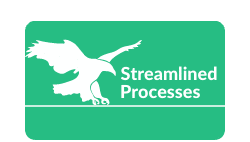For Crm For Targeted Marketing, see our main page here.
Why Use CRM for Targeted Marketing?
Businesses don’t thrive on guesswork. They grow through data, insights, and smart planning. That’s where CRM for targeted marketing becomes essential. It gives you a structured way to collect, store, and use customer data to personalize interactions and boost results.
Instead of blasting the same message to everyone, companies can now tailor campaigns to individual preferences. As a result, conversions improve, engagement deepens, and customer retention increases. For example, an online retailer using CRM can promote winter jackets to a customer in Chicago and swimsuits to someone in Miami—at the same time.
Key Features That Support Targeted Campaigns
A CRM does more than just store contact information. It acts as your marketing command center. Let’s explore the features that make CRM such a powerful tool for targeted campaigns:
- Segmentation Tools: Divide your audience by behavior, purchase history, location, and demographics.
- Email Campaign Integration: Trigger emails based on actions like cart abandonment or recent purchases.
- Behavior Tracking: Monitor website visits, email opens, and click activity to tailor future content.
- Lead Scoring: Prioritize prospects based on interest and readiness to purchase.
- Analytics and Reporting: Track what’s working and adjust strategies in real-time.
Each feature helps sharpen your message. If implemented well, your campaigns will feel like conversations—not ads.
How CRM Transforms Marketing Strategy
With CRM for targeted marketing, you’re no longer just reacting to customer behavior—you’re anticipating it. This predictive power transforms a static marketing strategy into a live, responsive ecosystem.
For example, when a SaaS company used CRM to track product usage, it noticed specific features triggered upgrades. They then tailored email workflows to highlight these features during the trial period. As a result, conversion rates rose by 28% in three months.
Similarly, retailers often run A/B tests through CRM-linked platforms. They learn which images, discounts, or subject lines prompt engagement, allowing campaigns to evolve quickly based on performance.
CRM for Targeted Marketing in E-commerce
In e-commerce, timing and relevance are everything. CRM systems help brands deliver personalized offers just when customers are most likely to act. Imagine a clothing brand sending loyalty rewards right before a buyer’s birthday or a re-engagement email after 30 days of inactivity.
Tools like HubSpot or Salesforce integrate seamlessly with e-commerce platforms like Shopify or WooCommerce. This lets sellers automate follow-up based on shopping cart behavior, order history, or customer lifetime value. As a result, they build loyalty while avoiding spam.
Most importantly, automation allows smaller teams to deliver personalized follow-ups at scale—once a luxury, now a standard practice.
Industry Trends Driving CRM Adoption
Several recent trends explain why CRM for targeted marketing is becoming a must for modern businesses:
- AI-Powered Insights: Predictive analytics tools suggest which leads are warm and how to engage them.
- Omnichannel Integration: CRM systems now unify communication across email, chat, phone, and social channels.
- Hyperpersonalization: Consumers expect tailored content, not generic spam. CRM makes this possible.
- Mobile-First Experiences: Marketers use CRM data to build text and app-based campaigns.
- Customer-Centric Models: Companies view CRM as the hub of every customer-facing experience.
In other words, CRM isn’t just for tracking—it’s for predicting, optimizing, and engaging through deep customer insights.
Common Mistakes to Avoid
Maximizing your CRM for targeted marketing means avoiding a few key missteps. Here are the common ones we see:
- Over-Segmentation: While detailed targeting is good, too much can create complexity and confusion.
- Ignoring Data Quality: Your CRM is only as smart as the data it holds. Outdated or inconsistent records cause poor targeting.
- Lack of Strategy: A CRM without a plan is like a ship with no map. Set clear goals before automating anything.
- Not Training Your Team: Even the best tools won’t help if your staff doesn’t know how to use them.
Each of these issues can slow progress and lead to missed opportunities. Careful planning ensures your CRM supports—not delays—growth.
Choosing the Right CRM for Targeted Marketing
All CRMs are not created equal. Your ideal platform depends on your goals, team size, and industry. Here are a few comparisons to guide your decision:
- HubSpot: Great for startups or growing teams. Easy to use with built-in marketing features.
- Salesforce: Enterprise powerhouse. Highly customizable and suited for complex workflows.
- Zoho CRM: Budget-friendly with solid marketing automation capabilities.
- Klaviyo: Designed for e-commerce, with deep email targeting and segmentation tools.
To clarify, no CRM solution is perfect for everyone. However, the right one should integrate easily with your existing tools and scale as you grow.
Real-World Success Stories
Let’s take a real-world example. A small health and wellness brand used CRM for targeted marketing to improve customer retention. They segmented users by past purchases and sent monthly updates with relevant tips and product bundles. Within six months, their repeat purchase rate went up by 35%.
Another case: A B2B software firm automated onboarding using email flows triggered by CRM-stored activity. The result? A 22% drop in churn and faster client onboarding timelines. These stories show how CRM adds measurable value with the right approach.
FAQ: CRM for Targeted Marketing
What’s the biggest benefit of using CRM for targeted marketing?
Predictability. You can see which messages work and when, then replicate success at scale.
Can small businesses afford a CRM?
Absolutely. Many platforms offer free tiers or affordable plans, especially for startups and small teams.
Is AI used in CRM systems?
Yes. Many CRMs use AI to offer predictive scoring, automated workflows, and content suggestions.
What’s the difference between CRM and email marketing platforms?
CRM is broader. It tracks customer interactions across all channels, not just email. Most good CRMs include email tools or integrate with platforms like Mailchimp or ActiveCampaign.
How long does it take to see results?
With a focused plan, businesses often see early wins within 60–90 days.
The Role of Automation and AI
This article was created with the assistance of AI tools and reviewed by our team at Streamlined Processes LLC to ensure accuracy and relevance. While automation helped organize ideas and optimize structure, our experts provided insights, edits, and real-world examples based on years of experience working with clients across industries.
By blending human expertise with smart tech, we deliver content that’s useful, accurate, and strategic.
Follow us on Facebook here.

